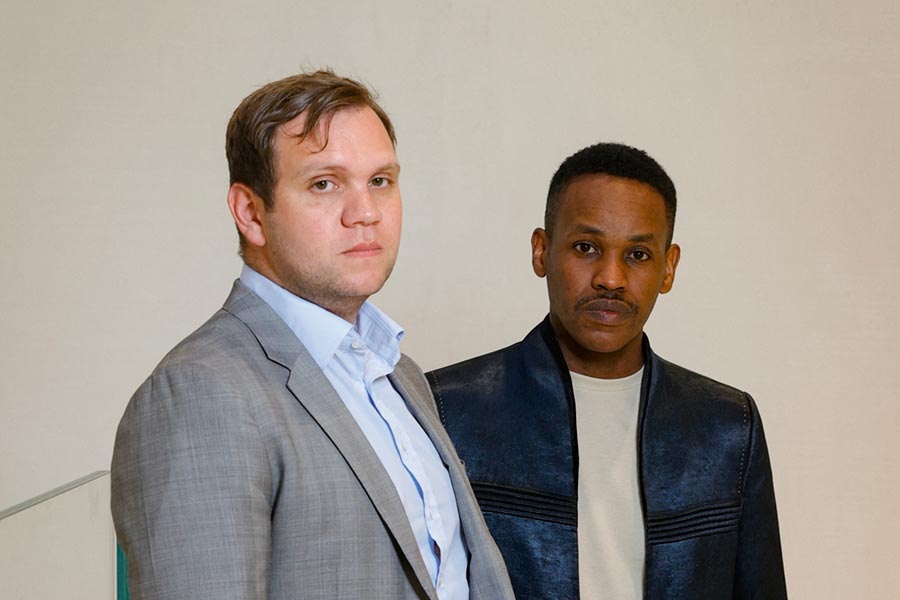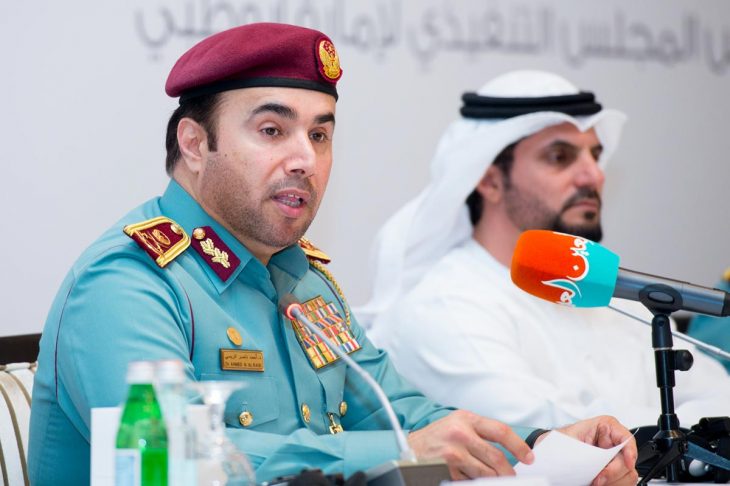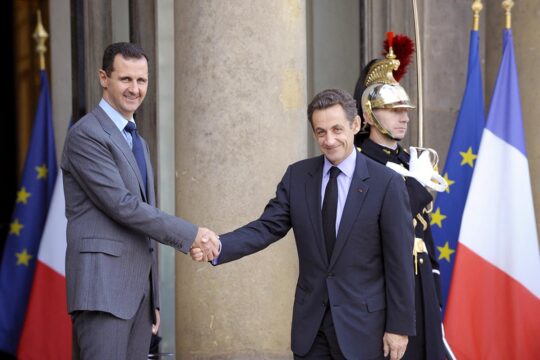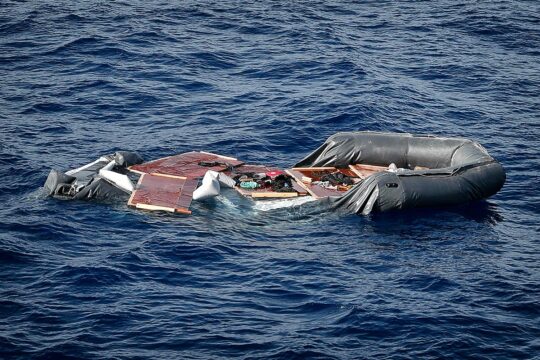In November 2021, the Emirati general Ahmed Nasser Al-Raisi became new president of Interpol in a hotly contested election. The post is essentially honorary, as management of the powerful international police organization remains ensured by its secretary general, Jürgen Stock of Germany who was re-elected for five years in 2019. But the Emirati's candidacy nevertheless raised a storm of indignation in Europe.
As early as October 2020, 19 human rights NGOs expressed concern about the possible choice of the general, saying it would “stand in great contradiction to the spirit of the Universal Declaration of Human Rights and the organisation’s mission”. In June 2021, 36 French parliamentarians urged President Emmanuel Macron to oppose, on behalf of France, the election of a member of "the high security hierarchy of the United Arab Emirates”. There was no response from the Élysée. A few months later, three European MPs wrote to the President of the European Commission. "The next president of Interpol should come from a country with a well-established criminal justice system and a long-standing respect for human rights," they wrote.
Helped by handouts?
On November 25, 2021, Al-Raisi was elected by a majority of the 195 member countries of the Lyon-based organization. "The Emirates’ indirect contribution to the Interpol budget is not unrelated," said MP Hubert Julien-Laferrière, who initiated the parliamentary move against his candidacy. In 2016, the United Arab Emirates pledged 50 million euros over five years to the Interpol Foundation for a Safer World, based in Switzerland. This donation - which compares with member states’ cumulative statutory contributions of 60 million euros in 2020 – made Abu Dhabi the organization's top sponsor.
Being part of Interpol's governing bodies is "a way for [the Emirates], as for all emerging powers, to insert themselves into the fabric of international organizations and to exist on the international scene," noted journalist Pierre Gastineau, editor-in-chief of Intelligence Online, during an interview with France Culture last November. “But it especially suits their security concerns” -- notably through the famous Interpol "Red Notices" -- international wanted notices issued by Interpol at the request of police authorities of member states. These are in principle reserved for serious crimes, but countries like China, Turkey and the United Arab Emirates "have become masters in the art of issuing notices that serve their own domestic political agenda," said the journalist. In recent years, this practice has continued to increase. Today 65,000 notices are active, of which only 7,000 are public – so many that Interpol would be hard pressed to verify that they are all of based on the organization's criteria and not on a disguised hunt for opponents.
In April 2021, an investigative report commissioned by British lawyers found that the United Arab Emirates had abused the Red Notice system “both for minor offences and most importantly for political gain against those seen as a threat to the regime”. The author, former British judge David Calvert-Smith, ex-director of public prosecutions in England and Wales, was alarmed by the likelihood of General Al-Raisi's election. "The position of president is highly symbolic, but he also wields significant power within the structure of Interpol," the report warned. The Executive Committee, which he chairs, is where the agency's major strategic decisions are taken.
“A disgrace for Interpol and France”
This election "taints the reputation of Interpol", says French politician Hubert Julien-Laferrière, and the silence of France, where the organization is based, is "deafening". "The vote was by secret ballot, but I have little doubt that our country voted for him," he said, recalling the close ties between Paris and Abu Dhabi, which is a pillar of French diplomacy in the Gulf and a major client of its arms industry. "This election is a shame for Interpol and for France."
Yet this is not the first time Interpol has had a president whose country notoriously disregards fundamental rights. In 2016, the election of former Chinese deputy minister of public security Meng Hongwei did not cause so much of a stir. He was not accused of "torture". On the other hand, his sudden disappearance two years later during a trip to China, followed by his reappearance and conviction on corruption charges, did draw a lot of public attention.
A security system with “medieval” methods
Let’s go back a bit. In June 2021, French lawyer William Bourdon filed a complaint, on the basis of universal jurisdiction, with the French war crimes unit, on behalf of the Gulf Centre for Human Rights (GCHD), an organization based in Lebanon. It targeted General Al-Raisi, Inspector General at the Emirati Ministry of Interior, for responsibility in the detention and mistreatment of human rights activist Ahmed Mansoor.
Arrested in 2017 and sentenced the following year to ten years' imprisonment for "harming the reputation of the state," Mansoor has since been held in solitary confinement in a four square metre cell in Al-Sadr prison, in Abu Dhabi, the capital of the United Arab Emirates, with no light and virtually no human contact. Bourdon says these prison conditions are "medieval" and constitute torture according to the 1984 International Convention against Torture.
"As Inspector General of the UAE Ministry of Interior since 2015, this general is not only at the heart of the repressive security apparatus in the Emirates, he is one of its bosses," said the lawyer. He would necessarily have known about Mansoor's conditions of detention and was in a position to approve them, even if only by his inaction, argues Bourdon. Because of his hierarchical position, "his criminal responsibility in the acts of torture suffered by Ahmed Mansoor must be investigated".
Unlike war crimes and crimes against humanity, the lawyer said, a complaint for torture can be brought without the need for the suspect to have "habitual residence" in France or the requirement of "double criminality" (that is to say that the charge is criminal in both the country of prosecution and the suspect’s own country). The suspect’s presence on the territory is enough to establish the jurisdiction of French justice.
In September 2021, another complaint, for the same alleged acts, was filed in Lyon by Mr. Gilles Devers, on behalf of another NGO, AFD International, based in Brussels. But both complaints were dismissed by the prosecutor's office for lack of jurisdiction. The general, who was campaigning for his candidacy at the time, was not present in France when the complaints were filed.
Opening of a preliminary investigation
However, on January 18, Bourdon filed a new complaint, again on behalf of the Gulf Centre for Human Rights. Al-Raisi, newly elected head of Interpol, had been in its Lyon headquarters since the day before. While the complaint is more or less the same as the one filed in June, the lawyer took care to add some elements concerning the diplomatic immunity that the Emirati now enjoys because of his new position.
His "functional immunity" could not be invoked in this case, argues Bourdon, because the offence was not committed in the framework of his functions at Interpol. In addition, he says, the text providing for immunity from arrest and detention "does not hold "in the case of a crime or flagrante delicto".
After the complaint in January, a preliminary investigation was opened at the National Anti-Terrorism Prosecutor's Office, and members of the Gulf Centre for Human Rights were interviewed. "But General Al-Raisi was neither questioned nor even invited to a hearing while he was in France," complains Bourdon.

“complicity in torture”
British lawyer Rodney Dixon also filed a civil suit in January on behalf of two British citizens, Matthew Hedges and Ali Issa Ahmad, for "torture" and "arbitrary detention”.
Hedges is a doctoral student at Durham University in England and a consultant for the geopolitical risk analysis firm Gulf State Analytics. Arrested in May 2018 in the United Arab Emirates, he was sentenced in October of the same year to life imprisonment for "espionage". He was subsequently pardoned and released, under pressure from London, but was severely tortured during his five months of detention. Ahmad, a security guard from Wolverhampton, was arrested in January 2019 while attending the Asian Football Cup, and was held for a month before being released. He reports being repeatedly beaten and stabbed during his detention. The authorities are said to have accused him of wearing a T-shirt with the flag of Qatar, a great rival of the Emirates, during the match between the two countries' teams.
General Al-Raisi could not have been unaware of these detentions and the acts committed during them, stresses their lawyer Dixon, if only because of the "international profile of these detainees" and the "nature of the charges" against Hedges in particular. "My clients argue that none of these acts could have been committed without his direct involvement," the lawyer says. Throughout 2021, the two Britons and their lawyer had been filing complaints under universal jurisdiction, in the UK and several countries where the general was likely to travel, such as Turkey, Norway and Sweden.
In reaction to the complaint filed in France, the specialized unit of the public prosecutor's office opened a judicial investigation at the end of March for "complicity in torture". The two Britons were interviewed by an investigating judge on Wednesday May 11 and their lawyer says that "an important step has been taken". General Al-Raisi is, for the moment, far from French territory.
The British lawyer hopes the opening of this judicial investigation marks a turning point and that it will be followed by judicial consequences. "Given that this is an ongoing case, it would be premature for Interpol to comment," the police organization’s press office said in response to Justice Info questions, adding that "the president remains a full-time official in his country and is not based full-time in Lyon”.







